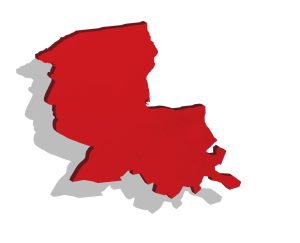Faculty panel discusses policies of presidential hopefuls
November 2, 2016
To engage Tulane students in this historic election season, the Department of Political Science hosted a faculty panel on Oct. 26 in the Lavin-Bernick Center titled “What Would a Trump or Clinton Presidency Mean for Policy,” featuring professors Celeste Lay, Mirya Holman and Nancy Maveety.
Lay kicked off the program by examining some areas of interest in the United States’ domestic policy. Noting that both candidates have made sweeping campaign promises, Lay tried to separate fact from fiction regarding what powers the next president will have to enact policies.
She said that if Donald Trump wins the presidency, he will not be able to repeal the Affordable Care Act by executive order. If Hillary Clinton is elected, she will not be allowed to raise taxes on top earners without the consent of Congress, which will likely remain Republican or become divided if Democrats take back control of the Senate.
Despite some of the outlandish promises the candidates have made to voters over the last year, a study cited by Lay that tracked campaign promises from Presidents Woodrow Wilson to Jimmy Carter found that winning candidates followed through on 73 percent of promises made on the campaign trail.
“It’s worth listening to the candidates when they tell you what they want to do,” Lay said.
Following Lay, Holman spoke about women’s issues and environmental policy.
According to Holman, it’s hard to pin down exactly where Trump stands on many policy issues, such as women in the military or gender-based violence.
Holman believes Clinton’s positions on these issues, however, are clearer due to her time as the first lady, Senator of New York and Secretary of State, and from the detailed proposals that her campaign has laid out regarding equal pay legislation and domestic violence prevention.
While the president can not directly change most gender-related policy, environmental policy is another story. Holman noted, in particular, the importance of presidential appointees and management of the federal bureaucracy for issues of environmental policy. She also expressed trepidation toward what she perceives as Trump’s hostility toward scientific consensus on climate change and what that might mean for environmental issues going forward.
Maveety analyzed what she believes to be one of the only relatively normal things about this election: the discussion over each candidate’s potential nominees to the Supreme Court.
Maveety began by providing context surrounding the current battle to fill the vacancy left on the land’s highest court with the death of the conservative Justice Antonin Scalia. She then laid out some ideas about what each candidate is looking for in a potential nominee, wrapping up the panel by discussing the significance of down-ballot races to the eventual confirmation of a new Supreme Court Justice.
If there was one thing in which all panelists seemed to be in agreement, it was a shared feeling of exhaustion and hope that Nov. 8 will come sooner rather than later.
Regardless of the eventual outcome of that day, however, Lay, Holman and Maveety all recognized the importance of weighing various scenarios and possible outcomes, always hoping for the best, but being ready for the worst.









Leave a Comment